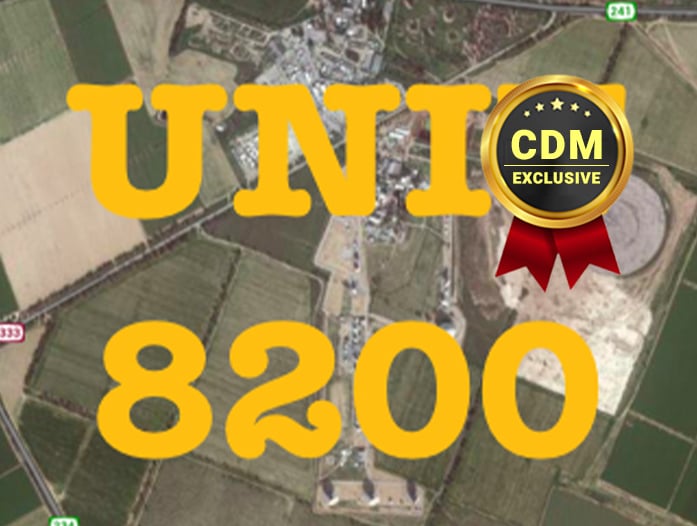- Cyber as a Pressure Valve: Why Economic Conflict Is Fueling a New Era of Cyber Escalation
- “2025년 스테이블코인 투자 2024년 대비 10배 예상”···CB인사이츠, ‘스테이블코인 시장 지도’ 공개
- The best portable power stations for camping in 2025: Expert tested and reviewed
- "제조 업계, 스마트 기술 전환 중··· 95%가 AI 투자 예정" 로크웰 오토메이션
- What to Do If You Book a Hotel or Airbnb and It Turns Out to Be a Scam | McAfee Blog
Three Lessons from A Unit 8200 Cybersecurity Alum

By Yotam Segev, Co-Founder and CEO, Cyera
The cybersecurity startup community continues to be dominated by former Israeli cyber intelligence professionals – Unit 8200 alumni. As a former member of 8200 and now the co-founder and CEO of a cloud data security company, I’ve recently come to realize how my time in the military prepared me for the startup environment. I can also understand why it’s likely that former 8200 members will continue to lead advancements in the commercial realm. Here are three lessons learned through the 8200 program that have helped guide me through my first commercial venture.
Always Deliver
Unit 8200 embodies the startup culture. The people are brilliant, driven, and resourceful. Leadership pushes each team member to deliver maximum, sometimes seemingly unrealistic, results. Bottom-up initiatives occupy most of the organization, and the authority of a young team leader is bound only by their “hutzpa.” But what truly differentiates Unit 8200 is its incredible cyber engineering capabilities. The combination makes the team fearless. Once the agency sets its sights on a goal, the team of engineers finds a way to achieve it. Always.
Never, in my decade of service, did I witness the agency fail to achieve a goal. It wasn’t always pretty. Sometimes a solution was delivered by a 19-year-old hacker who hardly slept to make it happen, but we always delivered. That spirit allowed the organization to take on the greatest challenges in cybersecurity with the confidence that the team would find a way to solve them. It is from these experiences that 8200 members espouse an “always-deliver” mentality.
Customer-Driven Engineering
This never-fail attitude was coupled with a cutting-edge mindset, not only from a technological standpoint, but also from a military one. At 8200, we were always working on the next big thing, the thing that no one was familiar with – the thing that only a few understood. It made product management even more crucial. It’s one thing to manage a product for an established market category. It’s an entirely different story when you’re delivering a wholly new concept to an unknown industry segment.
Yet, product management wasn’t prevalent in 8200. Instead, engineers interacted directly with their customers to thoroughly understand their needs and wants. Connecting engineers with customers, allowing them to experience the end user’s challenges first-hand, can dramatically improve the quality of the product and help to ensure it aligns with customer expectations.
Question Assumptions
This engineer/customer interaction enabled engineers to set aside their preconceived notions that could distract them from delivering a product that met their customer’s requirements. This was critical because assumptions can devastate product development. Ignoring assumptions can be difficult, especially for those in cybersecurity who acquire deep knowledge about human nature. For example, cybersecurity experts learn how people navigate web pages, what compels people to click on links, how people react when they’re under cyber-attack. Experts learn how people assume and how this impacts human behaviors.
In life, many people treat assumptions carelessly, and this is where most security programs fail. For instance, you know that your house has a door and some windows, so you protect them. You believe that $1,000 in cash is an asset, so you keep it close, perhaps in the nightstand. Hackers are aware of this natural human behavior. They’re always looking for the path of least resistance to access the things you aren’t protecting because they know what you are protecting – they know your assumptions. The lesson learned here is when you assume, you often miss the mark – in this case, fail to properly protect yourself and your assets or fail to deliver a meaningful product. Always question assumptions.
Serving in 8200, building new teams, and launching business lines prepared me well for the startup journey. I was curious how my military experience would translate in the commercial sector in terms of navigating market and customer expectations. What I’ve confirmed in the last couple of years as a business leader is a group of determined and talented individuals with an always-deliver mentality, a commitment to customer-driven engineering, and the know-how to question assumptions can and will continue to disrupt existing markets and introduce compelling products. Embracing these lessons can have a dramatic impact on the trajectory of an organization.
About the Author
Yotam Segev is the Co-Founder and CEO of Cyera, where he leads the strategic direction and operations. Before Cyera, he served as the Head of the Cyber Department for the Israeli Military Intelligence, Unit 8200, where he and Cyera CTO Tamar Bar-Ilan, co-founded and ran the unit’s cloud security division. Segev assumed that role after completing the Israeli Defense Forces’ Talpiot program, which recruits individuals with outstanding academic ability in the sciences and leadership potential.
In addition to his time in the Israeli Military Intelligence, Segev received his Bachelor of Science in computer science and physics from the Hebrew University of Jerusalem. Segev also graduated from the Mandel Leadership Institute’s School for Educational Leadership in the Military program and was a Nativ Program Fellow in political science and government at the Israeli Center for Liberal Democracy. Segev can be reached on Linkedin or visit the company website at https://www.cyera.io/.

